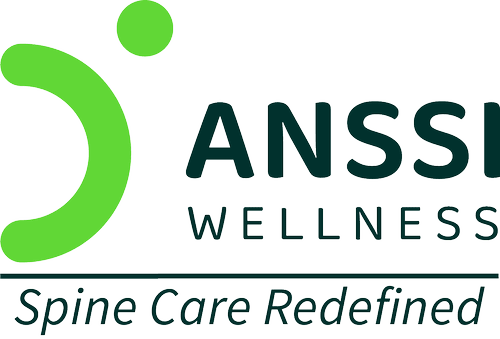A strong and healthy spine is essential for overall well-being, mobility, and an active lifestyle. While exercise and posture correction are crucial, nutrition plays an equally vital role in maintaining spinal health. The right nutrients help in bone formation, muscle support, and preventing degenerative conditions.
Ensuring a diet rich in spine-supporting nutrients is key to long-term health and strength.
Essential Nutrients for Spine Health
The following nutrients have a significant impact on a woman’s spine health.
1. Calcium: The Building Block of Strong Bones
The most crucial nutrient for bone strength and density is calcium. It helps prevent osteoporosis, a condition that weakens bones and increases fracture risk, particularly in women post-menopause. Since the spine bears most of the body’s weight, maintaining adequate calcium levels is essential for preventing back pain and spinal degeneration.
Best Sources:
- Dairy products like milk, cheese, and yoghurt
- Leafy greens such as kale and spinach
- Almonds and sesame seeds
- Tofu and calcium-fortified plant-based milk
2. Vitamin D: Enhancing Calcium Absorption
For the body to absorb calcium, vitamin D is essential. Without enough vitamin D, even a high-calcium diet will not effectively strengthen bones. Deficiency in vitamin D can lead to brittle bones, increasing the risk of spinal fractures and chronic back pain.
Best Sources:
- Sunlight exposure (15-20 minutes per day)
- Fatty fish like salmon, tuna, and mackerel
- Fortified foods such as milk, orange juice, and cereals
- Vitamin D supplements in case dietary intake is insufficient
3. Magnesium: Supporting Bone and Muscle Health
Magnesium plays a vital role in bone formation and muscle function. It helps in calcium metabolism and supports the nervous system, reducing muscle cramps and stiffness that contribute to back pain. Women who suffer from frequent muscle spasms or lower back discomfort may benefit from a magnesium-rich diet.
Best Sources:
- Nuts (almonds, cashews, walnuts)
- Seeds (pumpkin, sunflower, flaxseeds)
- Whole grains (brown rice, quinoa, oats)
- Legumes (lentils, chickpeas, black beans)
4. Protein: Essential for Muscle and Tissue Repair
Protein is necessary for muscle repair and maintaining spinal support. The muscles around the spine provide stability and prevent injuries. A lack of protein can lead to muscle weakness, increasing the strain on the spine and leading to pain or misalignment.
Best Sources:
- Lean meats such as chicken and turkey
- Eggs and dairy products
- Plant-based sources like lentils, beans, and quinoa
- Protein supplements for those with higher dietary needs
5. Omega-3 Fatty Acids: Reducing Inflammation
Chronic inflammation can contribute to joint pain and spinal issues, especially in conditions like arthritis. Omega-3 fatty acids help reduce inflammation, improve joint flexibility, and protect the spinal discs.
Best Sources:
- Fatty fish (salmon, sardines, trout)
- Walnuts and flaxseeds
- Chia seeds and hemp seeds
- Fish oil supplements
6. Vitamin K: Boosting Bone Strength
Vitamin K plays an essential role in bone mineralisation, ensuring that calcium binds effectively to the bones. This process helps maintain spinal strength and reduces the risk of fractures.
Best Sources:
- Leafy greens like spinach, kale, and broccoli
- Fermented foods such as natto and sauerkraut
- Brussels sprouts and asparagus
7. Collagen: Supporting Spinal Discs and Connective Tissues
Collagen is a key protein that supports spinal discs, ligaments, and cartilage. It helps maintain flexibility in the spine and prevents degeneration of the intervertebral discs, which can lead to conditions like herniated discs.
Best Sources:
- Bone broth and collagen supplements
- Citrus fruits (rich in vitamin C, which boosts collagen production)
- Berries, tomatoes, and bell peppers
- Egg whites and chicken skin
Complementary Lifestyle Changes
Proper nutritional intake together with complementary lifestyle changes ensure a healthy spine for a long time.
- Maintain a Balanced Diet: Eating a diet rich in essential nutrients ensures long-term spinal health. Include a variety of whole foods like dairy, lean proteins, nuts, seeds, and vegetables to support bone density and muscle strength.
- Stay Hydrated: Hydration is crucial for maintaining spinal disc health. The spinal discs act as cushions between the vertebrae, and they need adequate water to stay flexible and function properly. Drink at least 8 glasses of water daily to keep the spine hydrated.
- Limit Processed Foods and Sugary Drinks: Processed foods, refined sugars, and excessive caffeine can reduce bone density and lead to inflammation. High-sugar diets increase calcium loss from bones, weakening the spine over time. Reduce processed foods and opt for natural, nutrient-dense options.
- Engage in Weight-Bearing Exercises: While nutrition is essential, combining it with weight-bearing exercises like walking, yoga, or resistance training further strengthens bones and muscles, reducing the risk of spinal issues. Regular physical activity stimulates bone growth and helps maintain muscle tone, ensuring better spinal support.
- Maintain a Healthy Weight: Excess body weight, especially around the abdomen, puts added pressure on the spine, increasing the risk of lower back pain and disc degeneration. A balanced diet combined with regular exercise can help maintain an optimal weight and reduce strain on the spine.
- Get Regular Checkups and Bone Density Tests: Individuals over 40, particularly women, should monitor their bone health through routine checkups and bone density scans. Early detection of osteoporosis or other spinal conditions can help in taking preventive measures through dietary changes and lifestyle modifications.
About ANSSI:
ANSSI Wellness focuses on improving the quality of life for patients suffering from spinal issues, aiming to provide relief where other conventional treatments have failed. Through advanced non-surgical spinal decompression treatment, ANSSI is committed to helping patients avoid surgery and recover in a safe, effective, and compassionate environment.
Connect with ANSSI Wellness on LinkedIn, Instagram, and Facebook for expert guidance.



